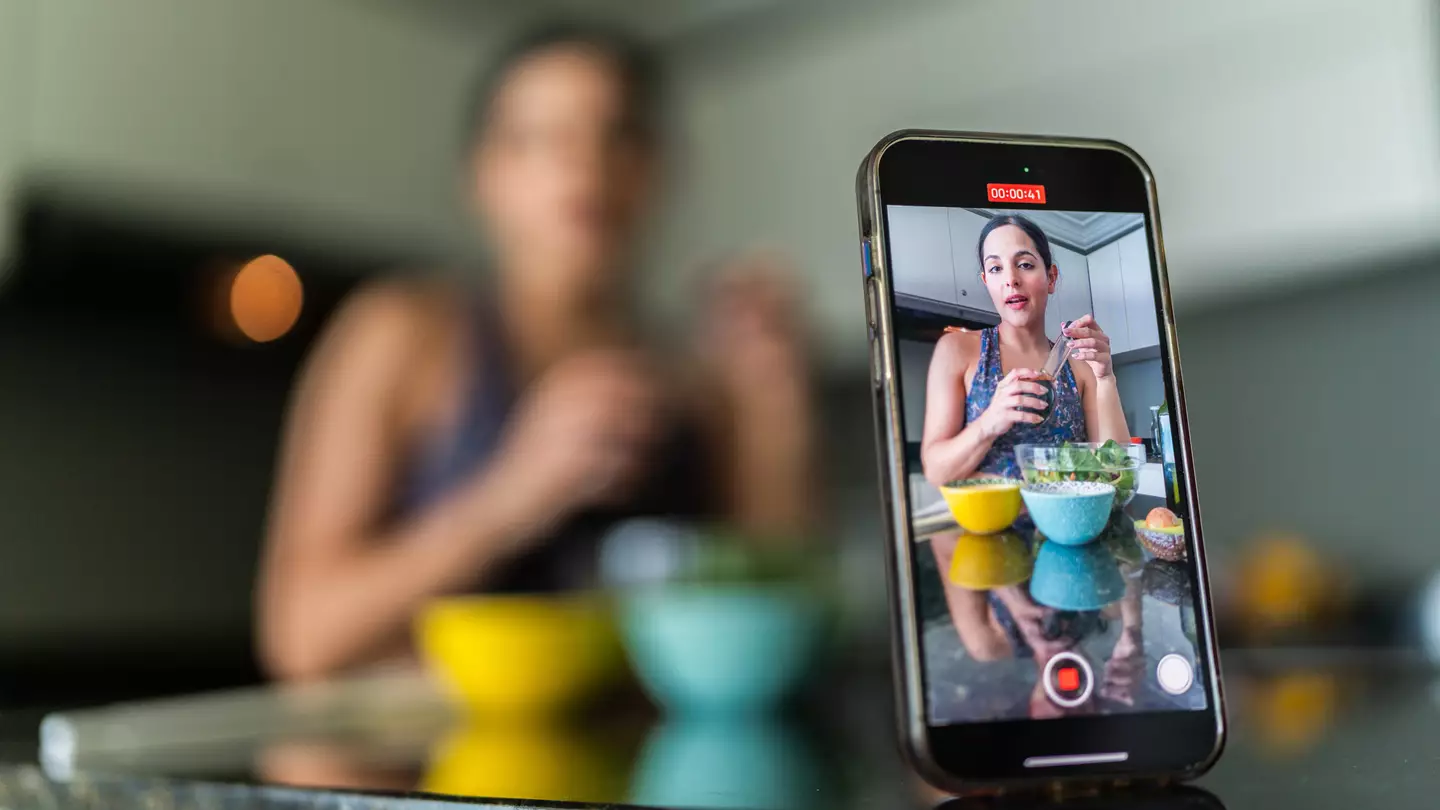
Apparently, there's a new 'influencer voice' sweeping the nation, and it could eventually change the English language for good.
It does sound quite dramatic, but if you're sceptical, just go on your For You page on any social media app and have a scroll.
You're guaranteed to come across a number of influencers that speak in this specific manner, for whatever reason.
In fact, people on TikTok itself have clocked onto the trend and called it out.
Advert

British singer-songwriter Cassy Brooking, best known by her stage name Cassyette, has made a video that has caught wind, criticising the inflexion that many influencers seemingly adopt nowadays.
It has since gone viral, garnering over 1.2 million views.
Brooking, best known for songs such as 'Dear Goth' and 'Petrichor', captioned the clip: "No shade am I missing a trick?"
She explained in the video: "Guys serious question, is it just me, or is there this new influencer voice that English influencers specifically use?"
The singer then began speaking in the voice, which consists of using short sentences, speaking slowly, dragging syllables out and going up at the end of each sentence, almost like you're adding a question mark.
.jpg)
Using the so-called 'influencer voice', Brooking said: "It sounds like I'm asking you a question, which might be really confusing, but I'm actually not.
"I'm just going up at the end of every sentence like, what is this voice?"
One user replied: "Same with mannerisms! Like the point and hand gestures when explaining something ugh idk how to explain it."
While someone else explained: "It’s called Uptalk and actually a very common selling technique.
"I remember an old director teaching me it. It makes you feel more engaged with the speaker."
Further confirming this theory, linguistic experts have also shared their thoughts on the way of speaking.
Linguistics professor Christopher Strelluf, from the University of Warwick, said that uptalk is used as a 'floor-holding strategy'.
Dr Strelluf told the National World: "In general, the way young women use language is the future of the way language evolves. So any changes we hear by young women are probably the future of English."
While Dr Laura Bailey, a lecturer in English Language and Linguistics at the University of Kent, told the Daily Mail: "All of these result from the genre: One person is speaking to a camera, and someone who needs to hold the floor in order to get people to continue watching."
Topics: Social Media, TikTok